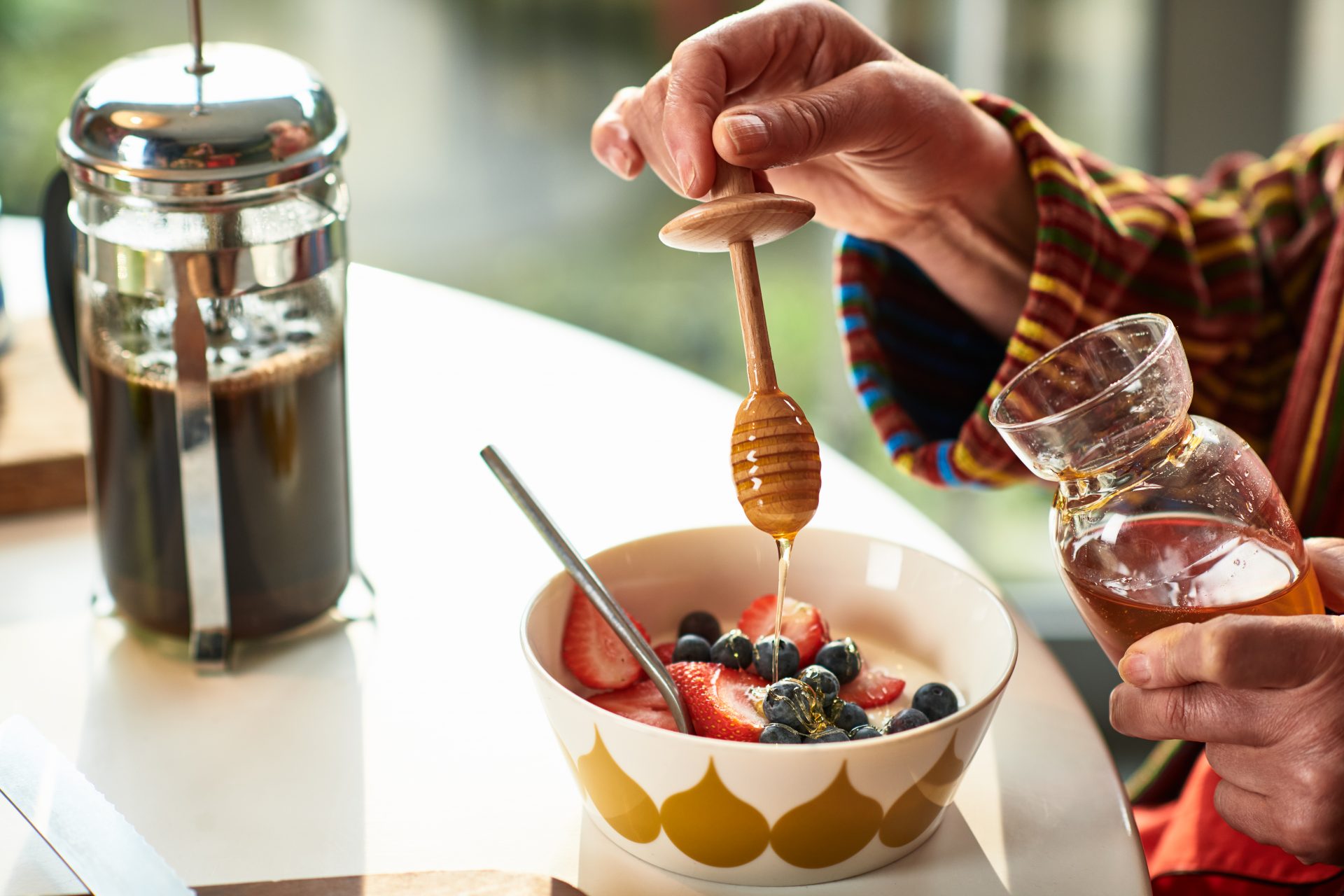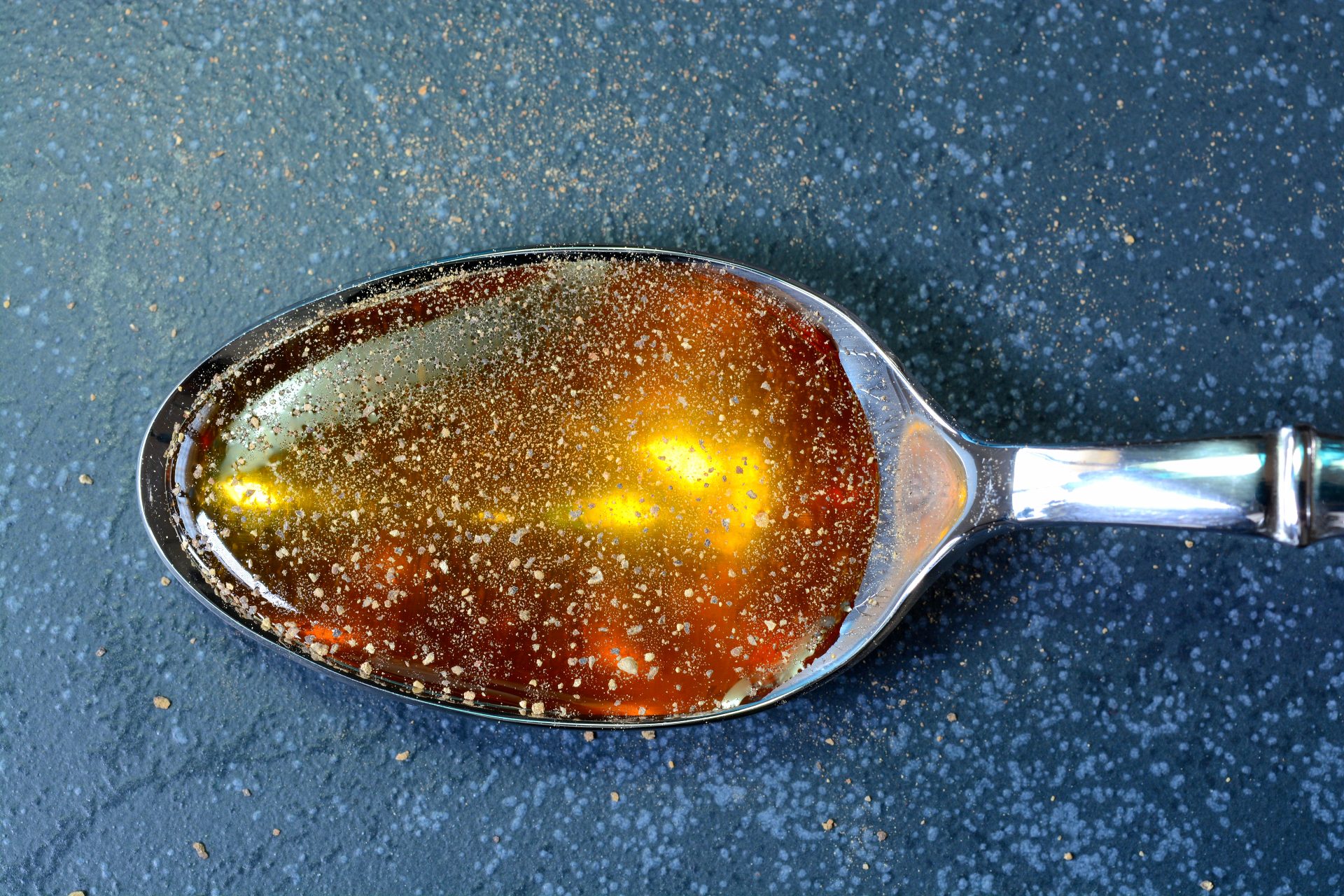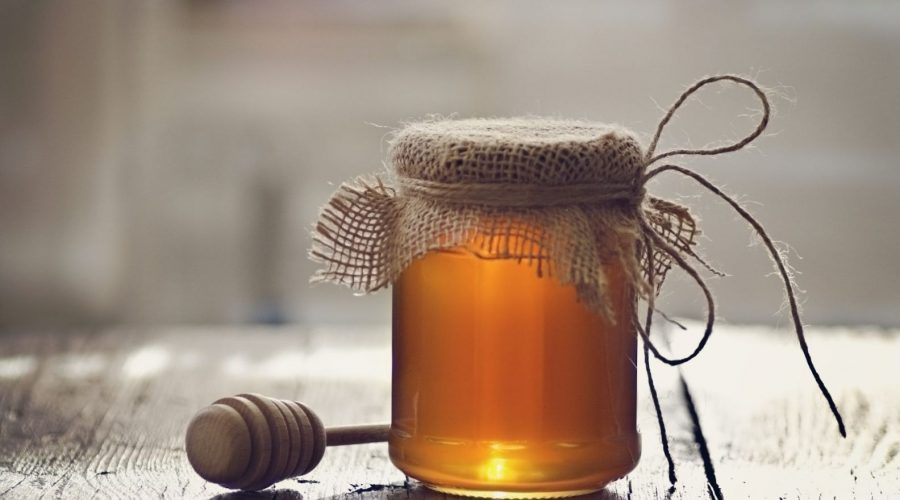Why honey is so good for us, according to experts
You might be used to stirring a spoon of honey into your hot water and lemon, but people have been using the sticky stuff for a whole host of medicinal purposes. The question is: does eating honey have any real health benefits?
Numerous studies have shown that honey can be an effective remedy for colds and coughs, but a new study has just revealed that honey may have plenty of other health benefits.
A 2022 study from The University of Toronto has shown that honey, especially robinia, clover and unprocessed raw honey, could have a beneficial impact on our heart health and help prevent disease.
Researchers who analysed findings from 18 trials and 1,100 participants found that consuming honey reduced blood sugar levels, LDL (‘bad’) cholesterol, triglycerides (fats) and other biomarkers of inflammation that can increase the chances of developing cardiometabolic diseases including heart attacks, strokes and diabetes. Honey was also found to increase HDL (‘good’) cholesterol.
You may also like
Best aubergine recipes: grilled aubergine dip with soy and thyme honey recipe
What’s interesting is that raw honey from a single floral source had the most positive effect on the body. These results may be surprising considering that honey is about 80% sugar (which is why many anti-sugar campaigners maintain that it’s not a useful alternative). However, Tauseef Khan, senior researcher on the study, says: “Honey is also a complex composition of common and rare sugars, proteins, organic acids and other bioactive compounds that very likely have health benefits.”
So, is honey good for our health? To find out more, we’ve been speaking with registered nutritionist Nuna Kamhawi.
You may also like
7 nutritionist-backed tips for eating healthily without breaking the bank
Why is honey so good for us?
Kamhawi explains that although honey contains very small amounts of nutrients, it is still rich in antioxidants and plant polyphenols. “These compounds are protective against oxidative stress that can build up in our cells and cause damage such as premature ageing”.
Another common use of honey is to combat coughing and respiratory infections. “There is indeed some evidence indicating advantages of using honey to soothe cough symptoms and duration without the risk of any side effects (unlike some cough medicines),” says Kamhawi.
Honey has also been used topically in wound healing and skin-burn treatment for centuries. “This has since been proven through scientific research, with its success being attributed down to its antibacterial and anti-inflammatory effects,” Kamhawi shares.
You may also like
Are sweeteners worse than sugar for your gut health and microbiome?
Is honey healthier than table sugar?
Using honey to sweeten food and drink has some small benefits over regular sugar, namely because honey doesn’t raise blood sugar levels as quickly as sugar.
Kamhawi explains that both honey and sugar are carbohydrates, but honey has the added benefit of being packed with antioxidants that can help to fight inflammation in the body. “It can also be used in smaller amounts without sacrificing sweetness due to it containing a higher proportion of fructose than sugar. Honey also tends to go through less processing than sugar and may contain some antibacterial effects too.”
The verdict? Honey does contain a lot of sugar, so moderation is key, but it also has added benefits over refined sugar. Kamhawi encourages eating honey within a balanced meal inclusive of protein, healthy fats and fibre.

Is it better to eat raw honey?
If you can, Kamhawi recommends opting for raw honey over commercial ones, which are the types you’re most likely to find in supermarkets.
“Raw honey is richer in antioxidants and polyphenols, which provide the health benefits discussed above,” explains Kamhawi. “The pasteurisation process involved in processing honey uses high temperatures, which destroys and reduces the antioxidant activity present in honey.”
It’s worth flagging, however, that raw honey does come with a much higher price tag, so that’s something to keep in mind.
Is honey safe for everyone to eat?
Kamhawi cautions that honey contains bacterial spores that can cause botulism (a rare but serious illness) in infants younger than one year, so parents are advised not to feed honey to children below this age.
“Honey is also a known potential allergenic food, so it can be dangerous for those who are allergic.”

How can we add honey to our diets?
- In a breakfast bowl with yogurt, fruit (berries) and granola
- In nutritionally balanced smoothies, for example, with fruit, peanut butter and milk/yoghurt
- As a salad dressing combined with extra virgin olive oil
- Honey-infused ice lollies
By entering my email I agree to Stylist’s Privacy Policy
Images: Getty
Source: Read Full Article
